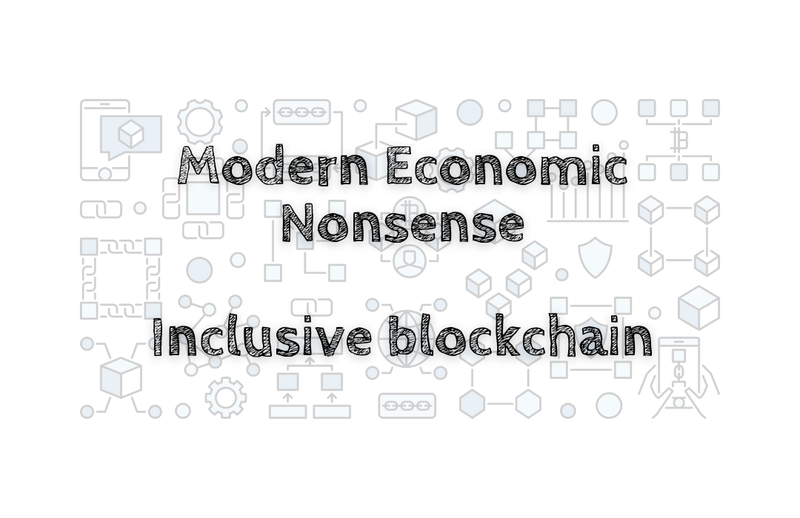
The world of cryptocurrencies has broadened in the past year. With more and more companies adopting blockchain and virtual currencies, the industry has become more inclusive. The blockchain is the digital ledger that records all cryptocurrency transactions. It’s decentralized so no one bank or company controls it. The result is a cheaper, more secure system for recording transactions and a marketplace where anyone can participate regardless of their nationality, gender or economic background. However, not everyone who uses blockchain technology benefits from it equally. There are many people who don’t have access to banking services or credit cards and because of this aren’t able to participate in virtual currency transactions; including those with disabilities, rural residents and those living in developing countries. This article details some barriers that could prevent non-users from using blockchains to their advantage, how you can make your project inclusive while also keeping security as high as possible and how you can ensure users are able to understand your solution easily without needing additional support.
Security issues
Blockchain technology is indeed more secure than traditional bank systems. Bank accounts are only available to a certain number of people and so security can become an issue if someone is able to gain access to them. Transactions are also publicly visible and so it’s possible for someone to see information about the account like how much is currently in it. This type of security means it’s not suitable for many everyday use cases. However, cryptocurrencies such as Bitcoin and Ethereum are more private than traditional bank systems. The digital nature of the currency means that transactions are recorded on a blockchain and so are less likely to be seen by outsiders. But while the blockchain is a secure method of recording transactions, it’s not one that can defend against all security issues. There are ways to obtain extra cryptocurrency if you’re able to access the internet. There are also some ways to obtain an advantage over other people who are participating in the system. For example, one way to gain an advantage is to launch an attack on the blockchain. This could include manipulating transactions or even hacking the blockchain itself. The risk of doing this is that it disrupts normal cryptocurrency transactions and those who are using it lose their money.
Lack of awareness
Blockchain is an exciting new technology that allows for trust and security in virtually anything, but there are some challenges that keep people away. One of the most common challenges is people’s lack of awareness. Most people don’t know what blockchain is or how it works, so they aren’t aware of the potential of the technology. This can lead to some people who are interested in using blockchain technology to miss out. This challenge can be overcome by educating people on blockchain and how it can help solve their problems. Another challenge is a bias in the market. This is caused by businesses seeking to gain an advantage by steering customers to their products rather than focusing on the needs of all users. When people are faced with access issues and unfamiliar technology, they may feel that blockchain doesn’t meet their needs and steer away from trying it out. Businesses can address this bias by focusing on accessibility and ease of use as part of their product development process. This helps to ensure that all users have an opportunity to use blockchain even if there are some challenges preventing them from doing so.
Barriers to entry for non-users
Because of the risks involved with cryptocurrencies, many people aren’t willing to try them out. This can be a barrier for non-users, who may feel like the technology isn’t accessible to them. There are barriers to entry for non-users that can be overcome by ensuring good accessibility and user experience. This includes making sure that your product is easy to use and understand by as wide a range of people as possible. It could mean that you need to consider your target demographic when developing your product, especially if it’s a service like digital currency.
How to make your project inclusive
There are a number of ways to make your project more inclusive. You can ensure that the technology you’re using is as accessible as possible and that the user interface is simple to understand. These are a few ways to ensure people with disabilities are able to participate in your project. You can ensure that your product is accessible for screen readers or Braille readers or that you have a well-documented support process. You can also make sure that there’s a way to quickly get in touch with a person who can help you with your product. This could include a support email or a social media channel. You can also make sure that non-users are able to easily understand your product. This could mean including an accessibility page on your website or making sure that your whitepaper is well-written and accessible.
Conclusion
The blockchain is an exciting new technology that has the potential to improve many people’s lives, but there are challenges that keep people away. You can overcome these challenges to make your project more inclusive by ensuring accessibility and good user experience. This includes making sure your product is accessible for people with disabilities and making sure your whitepaper is well-written and accessible.
Reminder: I am not your financial advisor.
Buy me a coffee here if you want to support my writings.
Comments